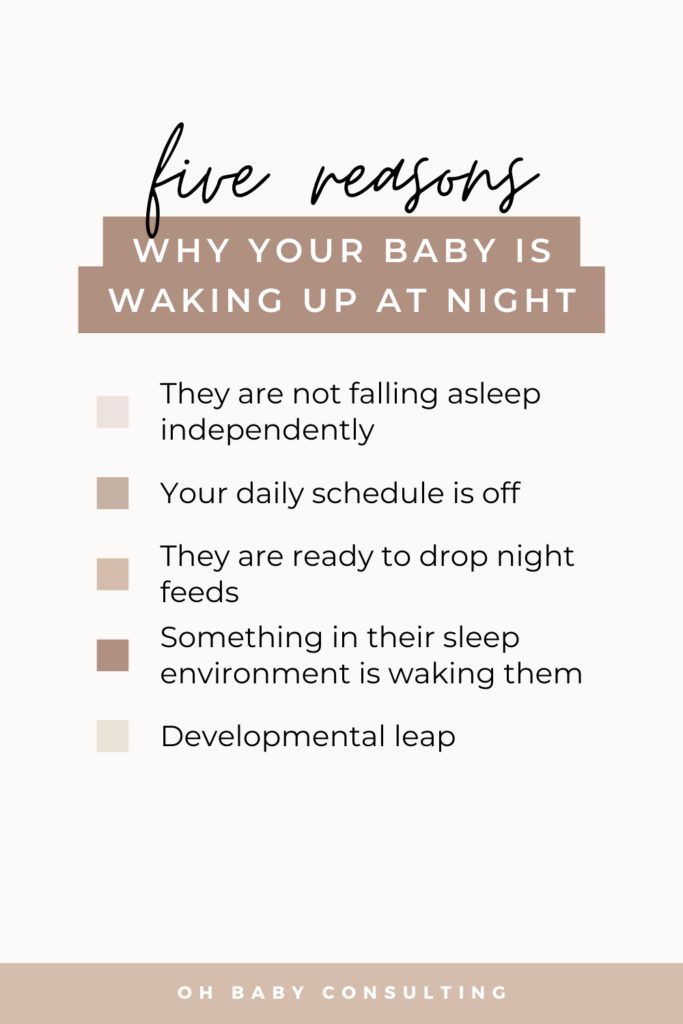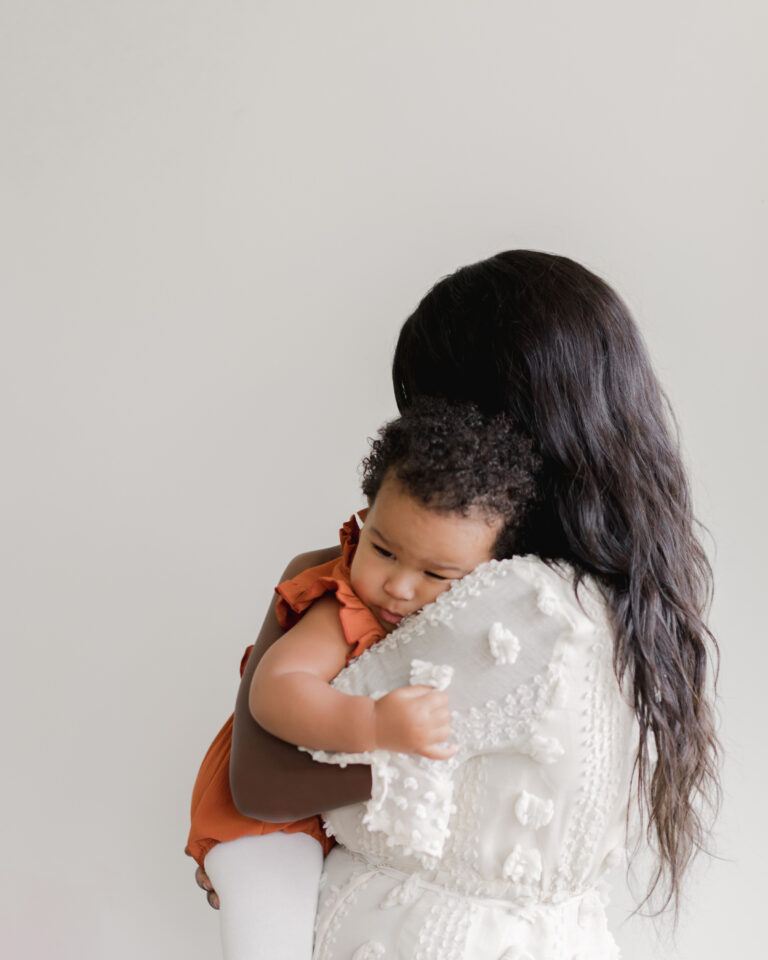If you’re Type A like me, you love a good checklist. So, I figured I would give you one to run through if you’re experiencing sleep struggles with your baby.
If your baby is not sleep trained then #1 is the one and only thing on this list that you need to focus on right now. But if your baby is sleep trained and sleep has been off track, you can use this list to get to the bottom of what the issue might be.
1. Your baby is not falling asleep independently
Like I said, if your baby is struggling with sleep but not yet sleep trained, this is where you want to start. Sleep is a skill, and when you teach your little one to fall asleep on their own, they’ll be able to employ that skill multiple times each night as they cycle through various stages of sleep vs getting stuck awake when they don’t want to be!
If you’re not sure where to start or whether sleep training is right for you, check out these blog posts.
What is Sleep Training?
Should I Sleep Train?
How to Start Sleep Training
2. Your daily schedule is off
As your little one grows and develops, their sleep needs are going to shift with them. Your little one might be sleeping too much for their age or be ready to drop a nap. Or maybe naps have been difficult and they are not getting enough sleep during the day or going into bedtime overtired. Night sleep is inextricably linked to daytime sleep, so making sure your schedule is appropriate is important.
3. Your baby is ready to drop night feeds
Much of the time, when babies learn to sleep independently, they will drop their night feeds when they are ready. However, some babies become “habitual nighttime eaters” and hold on to that last night feed longer than necessary. This can even lead to some babies waking up more frequently during the night and waiting for a feed as an easy way to get back to sleep. If you’re curious about whether your baby is ready to drop night feeds, read this blog post and speak with your pediatrician to come up with a plan together.
4. Something in their sleep environment is waking them
This could be light, temperature, or noise related, but most often I see light being the culprit. During the spring and summer months, many parents of great sleepers reach out to me and tell me that their babies are taking forever to fall asleep, waking up early in the mornings, and taking micro-short naps. One of the first things I check for is whether their room is completely pitch black (and I’m talking 100% can’t-even-see-your-hand-in-front-of-your-face dark.) Any sliver of light can both inhibit the rise of melatonin (the sleepy hormone) and signal to our body that it’s time to be awake, neither of which you want when you’re trying to keep your baby sleeping all night long.
5. They are going through a developmental leap or a growth spurt
When your baby is learning a new physical skill or going through a cognitive leap, the novelty of the situation competes with sleep for brain space…and novelty always wins. So, while your child is progressing in other areas of development, their sleep may be temporarily disrupted as they organize and master their new skills. Usually milestone-related sleep disruptions only last 1-2 weeks at most, and as long as no new sleep habits are introduced that you don’t intend on keeping up with, sleep should go back to normal once the skill is conquered.
Hopefully this checklist will help you to diagnose any current or future sleep struggles you experience. If #1 is the biggest culprit for your family, let’s work together to get a plan in place to help everyone start sleeping all night long.














